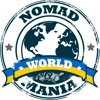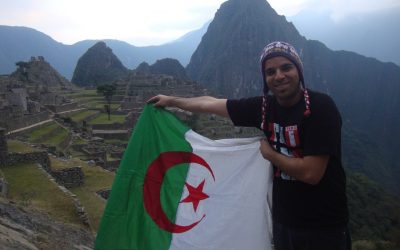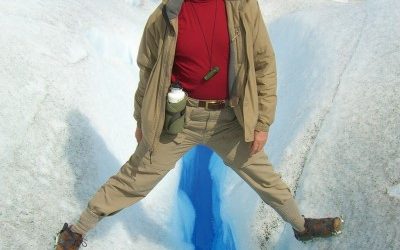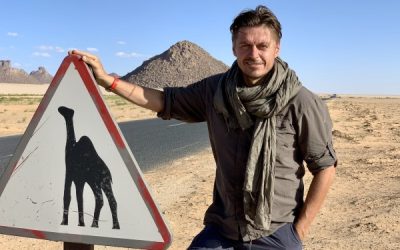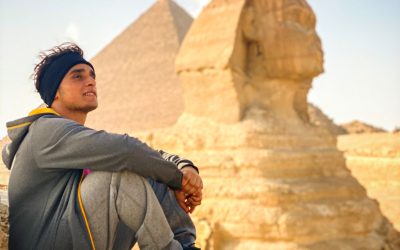Bengt Hildebrand is one of the few travellers who visited his last UN country in 2020 – before all lockdowns – thereby joining an impressive number of Swedes who have visited every country. This globetrotting doctor and avid NomadMania fan shares his adventures with us today.
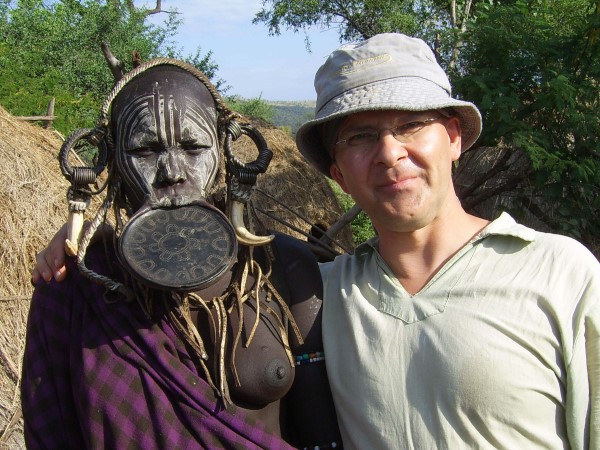
Bengt, tell us something about your early life and how your interest in travel developed.
I was born and raised in Stockholm in 1969 to a Swedish father and a Polish mother, neither of whom were ever particularly interested in travel. As a child I mostly went with my mother to Warsaw or other places in Poland but this stopped when my maternal grandfather passed since most other relatives died in World War II or had emigrated.
I didn’t really travel much until my early thirties when I joined a trip with the Swedish overland company the Pink Caravan (Rosa Bussarna). My first trip with them was the classic route from Cape Town to Nairobi. I loved this overland experience making new friends, partying and sharing several weeks of adventures. I kept booking new trips with the Pink Caravan, focusing mainly on their longer itineraries. Back then I didn’t read up on the countries we visited, since to me it was all about partying and the carefree life ”on board”. All in all, I think I made 18 trips with the Pink Caravan during which I constantly met new people, some of whom were ticking countries. Around 2006 there was a shift towards traveling with these ”tickers” and other friends. This was also when I started to count my countries.
Someone told me about Club100, a Swedish travel club. I contacted them in 2008 and have ever since got increasingly involved in the Club (see below).
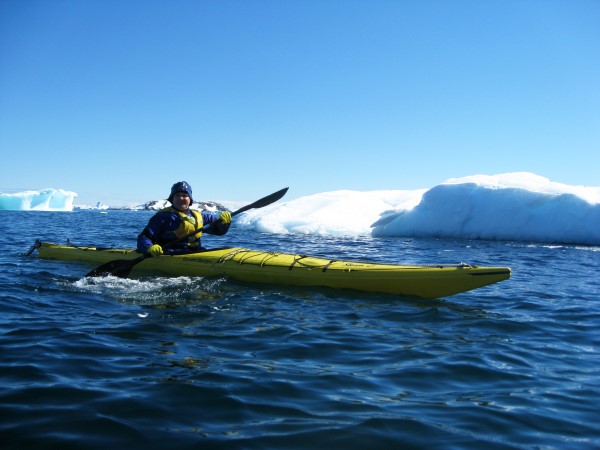
What quintessential Swedish qualities do you feel you have, and how have those influenced your approach to travel? And how do others react when they find out you are Swedish?
Even though I have Polish genes and some heritage, my mother never spoke Polish to me except when in Poland and we rarely did things ”Polish” during my childhood or youth. Thus I’m very much more Swedish than Polish.
I’m neither tall or blonde nor am I blue-eyed like the stereotype of a Swede would have it. But I would say that I’m not too social to strangers, especially back home, as well as, a bit afraid of conflict, both traits that often are attributed to Swedes. I’m hard-working, punctual and prefer teamwork to hierarchies, just like many other people in Sweden and northern Europe.
Honestly, I don’t think usually I get very much of a reaction when I disclose my nationality. We are not main players in world politics and conflict which is, if anything, to my advantage as a Swedish traveller.
It’s a small world, however, and the internet connects it, which became very apparent in a camel market in Hargeysa, Somaliland, a few years ago. After finding out I was Swedish an increasingly hostile crowd surrounded me, asking about the very recent burning down of a mosque in the insignificant Swedish provincial capital of Eskilstuna.Things didn’t calm down until I told them I condemned it and that there are criminals in Sweden as well as in every other country.

What are some hidden gems of your country that most travellers overlook but you would recommend?
The west coast from our Second City Gothenburg (Göteborg) and northwards to the Norwegian border is more rocky with less vegetation and includes gems like the islands of Smögen and Marstrand. Gothenburg itself is nice too and has a different atmosphere than Stockholm.
As a keen hiker, I do recommend Lapland in the north including the famous King’s Trail (Kungsleden) that passes through fantastic national parks such as Vindelfjällen, Sarek and Abisko. Another beautiful national park, that is dominated by lakes and straddles the Norwegian border, is Padjelanta.In early summer there will be white nights and in winter aurora borealis. If you go in late August or early September you will experience the mesmerizing colors of autumn and there will hardly be any mosqitoes.
If you are not into winter sports, go see Sweden in the summer or early autumn.

What is your style of travel?
When on my own I don’t mind traveling with carry-on luggage only and, if in reasonably safe places, sleeping in dorms. I prefer guesthouses to large expensive hotels as long as there is acceptable security and no bed bugs. That said, I have also enjoyed staying in posh hotels like the Hiltons, Sonargaon in Dhaka and Pearl Continental in Lahore.
I seldom do cruises but have joined a few, such as a three-week trip to Antarctica as well as shorter cruises along the coast of Chilean Patagonia and Greenland. If I do another cruise, It’ll be to enjoy the on-board-experience and not so much the ports-of-call. In fact, I and five friends were planning a Caribbean cruise in early December but had to postpone it to 2021 on account of the covid-19-pandemic.
When I go to tick off new countries I usually prefer to go alone or with other globetrotters that I know have the same mind-set because then I’d like to have things very much my way and as I (or we) have planned. I’m really picky who I travel with these kinds of trips. When I go with my best friends from Club100 there will usually be great company and an equally great trip.
That said, I still enjoy going with other friends ”from my normal life” but then I’m much more flexible and there will usually be no musts. When I’ve done trips with my girlfriends or my mother I usually let them lay out the agenda and I focus more on them and what they enjoy.
Nowadays, my optimum length of a trip is 2-4 weeks. I wouldn’t like being on the road for months or a year. However, when I was younger, especially when I travelled overland with the Pink Caravan, I wanted the trips to last several months.
I have an agreement at work which greatly facilitates travel. I work full time 70% of the year and I don’t work at all for 30% of the year. This deal enables me to do several multi-week trips a year and my salary is enough to both pay my bills and cover my travel related expenses.

Tell us of a few travel stories that really affected you.
However, the trip to Angel Falls in Venezuela was something special with a multi-hour boat trip upriver followed by a two hour hike to the base of the 1 000 m tall Salto Angel. We swam in the natural pool at the site before returning to camp where we stayed overnight seeing and hearing the waterfall in the distance. A magical experience.
Antarctica, too, was extraordinary crossing wild and roaring seas before arriving. We made landfall in zodiacs many times to observe the abundant marine life as well as points of historical interest. We kayaked on several occasions and also once camped in a reinforced sleeping bag in a hole we dug out for ourselves in the snow. So many shades of white and blue. Seals and penguins everywhere. Apricot skies throughout the night.
As already mentioned, I like hiking! My favorite hikes include Annapurna Circuit, Mount Everest, Tibet, Aconcagua, Kilimanjaro and a week-long trek through unmapped terrain in Tierra del Fuego. I also do annual solo trekks in Swedish Laponia and, in fact, returned from this year’s trip earlier today.
I’m a scuba diver too, and have had my best dives off Papua New Guinea as well as in the Indonesian Raja Ampat archipelago. Also some of my dives in Palau, Vanuatu and the Solomon Islands have been extraordinary as have the underwater encounters with sea lions, turtles and sharks in the Galapagos Islands. In Djibouti and Mocambique I snorkeled with huge whale sharks and in Tonga I swam with even larger humpback whales.
I’m fond of studying wildlife and have had some awesome national park visits to the African savannah but have also had close up encounters with gorillas in Rwanda and chimps in Tanzania as well as with lemurs on Madagascar and, mounted on an elephant, with tigers in India.
Every four years I serve as a doctor in a developing country for a couple of weeks or months. I usually go with missionary organisations and I always work for free. This gives me a deeper understanding of the country in question and also develops me as a physician. In fact, I was scheduled to be on a mission in Tanzania at this very moment but it got canceled because of the pandemic.
Last but not least, some individuals I met on my trips did or said something that really affected me and that I remember ever since. For example, the bus driver in Brunei Darussalaam who made a detour from the scheduled route of the bus just to drive me to the airport departure terminal. All the passengers in the bus smiled along with the driver as they waved me goodbye.

Which countries really surprised you based on what you had expected before visiting?
Still, I could mention Colombia and Venezuela whose beauty and many attractions took me somewhat by surprise. I will certainly go back to Colombia soon and maybe to Venezuela too, when the current situation there changes.
Moreover, I had heard a lot of bad things about Bangladesh before I set off but had a great time there, visiting six different areas and having nice encounters with locals. Moreover, there were no hustlers or touts around as there sometimes can be in the tourist sites of nearby India.
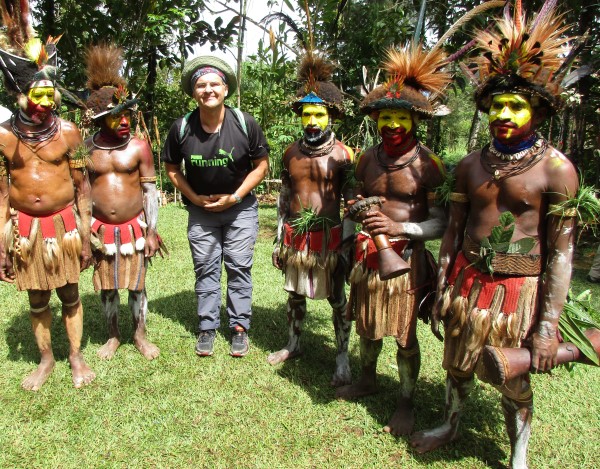
Now that you have completed all UN countries, what are your travel aims?
However, I plan on making annual trips to the United States, my favorite country, and will try to tick every state. At this moment I ”have” 21 out of 50. I want more states!
I will also tick the four European capitals that I havent visited yet (Bern, Ljubljana, Podgorica and Skopje). Probably, I can accomplish this before the end of this year, depending on travel restrictions. In addition, I have outlined about a dozen trips that I’d like to make, for example a solo tour through Spain (where several Swedish friends of mine reside). I’d also like to more in depth explore Norway, our neighboring country.
I might go back to some destinations off the beaten path with Swedish or other globetrotting friends, if invited to do, so but will likely not plan any more solo trips to such destinations.

You are a member of the Swedish Club100. Tell us a little about this travel club, how it operates, its aims and its members.
We count the 193 UN member states plus the Vatican and Taiwan yielding a total of 195 countries. Thus we don’t currently count e g Palestine or Kosovo. There are no political reasons for this. It just happened that way when our two founding fathers created our club.
The first decade or so there were less than ten members whereas today we have 78 full members (eight have passed away) and 59 prospects, including nine of the twelve Swedes that have visited every country. The founders decided that the maximum number of (living) members is 100 whereas there is, as of yet, no limit to prospects.
The membership fee is 100 USD and you have to join the club at our annual meeting. Those are held every second year in Sweden and the other years somewhere abroad. Next annual meeting is scheduled to happen in Malta in 2021. We also have regular meetings and club trips. I organised a club trip to Bhutan in 2014, an annual meeting (in 2010) as well as several meetings in Stockholm over the years. The language of the Club is Swedish only. Nevertheless, we have some foreign members (Finland, Austria, Russia, USA and Iran) but most of them have dual citizenship or speak Swedish for other reasons.
Our website is www.club100.eu
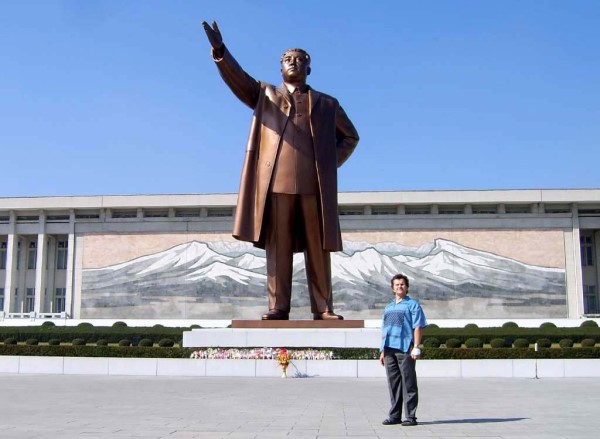
Sweden chose a different way to deal with the coronavirus crisis. What do you, as a doctor especially, think of this?
As a senior physician (specialist in Family Medicine) I was heavily involved in dealing with the crisis and had a lot of ”inside” information what was going on, for better and for worse. I also was struck by the crisis in a very personal way as I almost lost my father, who lives in an assisted living, to the coronavirus. This was a dreadful time.
I’m a bit surprised that decisions, even new laws, were made very fast and that there hasn’t been much quarreling among the political parties. This is a bit un-Swedish.
Even if our current way of dealing with the epidemic will prove to be correct in the long run, we have had to pay for old sins, having too few hospital beds, especially ICU capacity. With a huge effort our ICU capacity was boosted several-fold. Back in the Cold War we had lots of back-up supplies of disinfection, face masks, ventilators and such. These were however gradually phased out. Thus, our supplies turned out to be non-existent at the onset of the pandemic, which put additional stress on our health care system. The first few months, we didn’t have enough testing kits so many health workers were grounded at home for symtoms that probably not were related to the coronavirus. Maybe our greatest failure was that the virus was running rampant in our homes for the elderly, including that of my father. This is one of the main factors behind Sweden’s relatively high death toll.
I don’t envy our leaders. Many difficult decisions have been made and there are more to come.
Do you think that the coronavirus crisis will affect travel in the long term as well as the obvious short term?
Also, a lot of travellers that have lost or will lose their jobs in the wake of the crisis, will first have to get a new job and save up some money before they will be able to travel again.
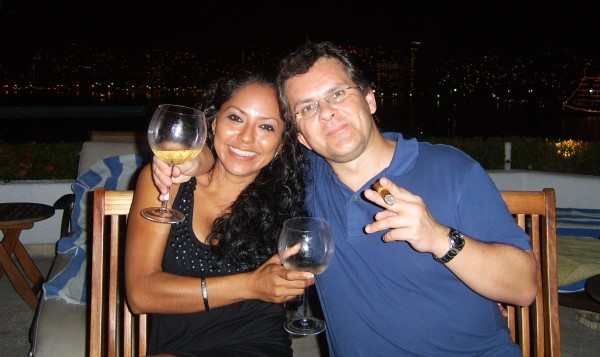
Finally, our signature question, if you could invite any four people to dinner from any period in history who would you invite?
However, I’d like to dine with my mother and father as well as my paternal grandmother at the age they were when I was a child or in my early teens. The fourth guest would be my beloved cat Tiger that would join us, eating from his tray on the kitchen floor but maybe then jumping up on my lap or even the table cloth. How I loved that cat!
Myself, at this fictitious meal, would not be a child again, rather remain at my current age and retain all my memories from the years that have passed in between.
Surrealistic, isn’t it?

